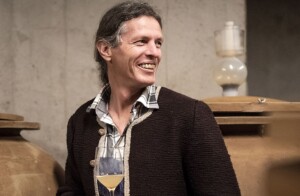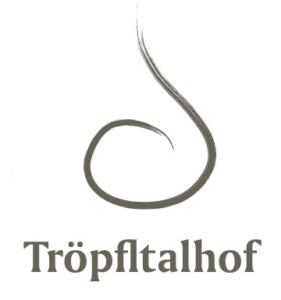Tropfltalhof

Andreas Dichristin
About
Owner & winemaker: Andreas Dichristin
Vineyards: 3ha across three different sites, all estate-owned
Vineyard management: Biodynamic since 2004, Demeter-certified
Soils: Varied, including clay, lime, porphyr, and limestone
Grapes grown: Sauvignon Blanc, Cabernet Sauvignon, Viognier, Merlot
Annual production: 10,000 bottles
Quick facts:
- The name Tröpfltalhof means house (hof) of the dripping valley (Tröpfltal).
- Andreas considers Demeter certification to be a starting point, not a goal–their approach is far more rigorous than the minimum standards.
- “I want a vibrant wine of energy, authentic and vital. To do this we have to allow nature to fully express itself and to tell its story and its present. Both in the vineyard and in the cellar. I want to do something for nature, not against it!” – Andreas Dichristin
Andreas Dichristin’s family has been farming in Alto Adige for generations. It’s a wildly diverse region, with a great variety of combinations between soils, exposures, temperature variations, grapes and traditions. The Tröpfltalhof estate is located between the Mendola massif and Lake Caldaro. Andreas describes the region as a mix between Mediterranean conditions during the day, when temperatures often exceed 30-32°C (but always windy), and more Alpine conditions at night, when cool breezes descend from the slopes of the Mendola and temperatures drop by more than 15°C. The estate is near a small river, which dries out almost entirely during the summer, giving the estate its name: house (hof) of the dripping valley (Tröpfltal).
Andreas took over management of the vineyards in the 1970s. For most of that time, the grapes were sold to a local cooperative. Over the years, there has been a gradual evolution–while the farming has always been what Andreas calls “low-impact agriculture,” in 2004 he transitioned from organic to biodynamic farming. “For me it was a natural transition but not a point of arrival,” Andreas explains. “Rather it was a new starting point to do even more and better.” In 2010, he began making and bottling his own wines for the first time.
The approach in the vineyard and in the cellars is the same: to help nature express itself at its best. Andreas sees biodynamic farming as “a search for harmony to create health rather than to fight disease.” While they are Demeter certified, the team considers it a starting point, not a goal: their practices are more rigorous and more natural than the minimum certification requirements. In the cellar, fermentations are spontaneous with indigenous yeast only; decanting is done only by gravity, never pumps; the wines are not filtered or clarified; and sulfur dioxide is added only in tiny quantities at bottling, not at any point during the winemaking process. Wines are aged in an assortment of large barrels, used tonneaux, and amphorae. “The amphorae are the ‘mirror of what I do in the vineyard’ and tell the story of the grapes, the territory and the vintage without veils and interference,” Andreas explains. He prefers the Spanish style of amphorae, which can be moved more easily so that they can be decanted via gravity instead of with pumps.

